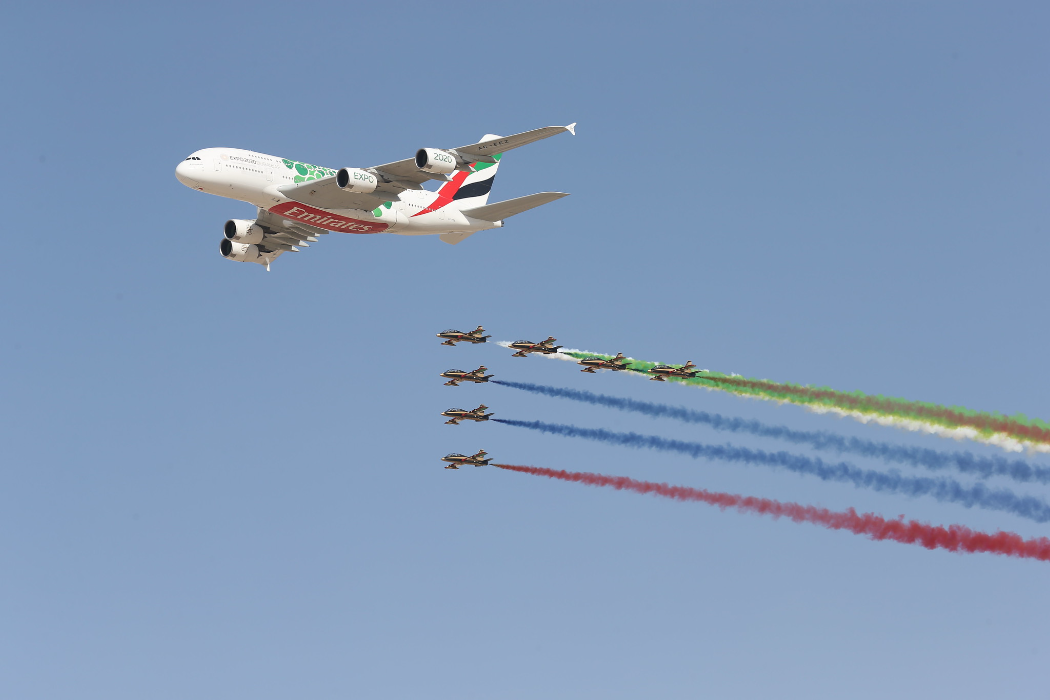
Dubai Air Show 2023 begins today.
This year’s edition of the biannual event where aircraft are promoted to potential customers is expected to be the largest so far with over 1,400 commercial and military exhibitors expected to attend and display advanced aircraft.
Although airlines in the Middle East recorded a 26.6% annual increase in passenger traffic this year, geopolitical tensions, like the recent flare-up in the Israel-Gaza conflict, have affected Middle Eastern airlines’ operations as well as regional tourism flows. Plane ticket purchases to places like Egypt, Jordan, and Lebanon have nosedived since Palestinian militant group Hamas attacked Israel in early October. In addition, flight hours have increased as airlines avoid Israeli air space, further driving up operation costs.
Industry experts expect the show to address pathways for maintaining stability and adaptability despite geopolitical shocks, especially focusing on variable route logistics and volatile fuel prices. The impact on air travel due to the war is likely to affect future growth plans for Saudi Arabia, which seeks to establish Riyadh as a major transit hub, challenging Emirates and Qatar Airways with its own Riyadh Air. The risk of regional spillover of the conflict is also expected to have a major impact on tourism, not only to Israel but also to North African and Middle Eastern countries.
Andrew Nicholas Prado-Alipui is a graduate of Syracuse University with a Bachelor of Arts in International Relations. He has contributed to the Daily Brief as an Analyst focusing on developments in Sub-Saharan Africa He will be pursuing a Master's degree at the University of South Carolina beginning in Fall 2022. Andrew is also a publisher of the Daily Brief.

